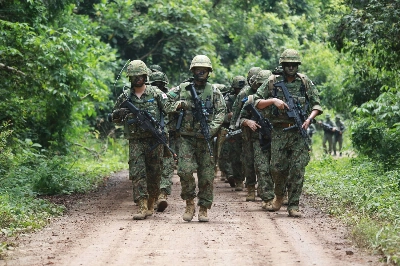Central Asia has occupied an important position in Japan's official development assistance for the past several years. In fact, our nation is the largest aid donor to the region. With the situation there changing dramatically in the wake of the antiterror war in Afghanistan, now is an opportune time for the government to review its ODA policy toward the nations of Central Asia.
Japan's foreign aid program came under critical public scrutiny recently in connection with a diplomatic row involving the Foreign Ministry and an influential Liberal Democratic Party legislator who was said to be closely involved with aid projects. The dispute has raised questions about transparency in relations between bureaucrats and politicians. It should be addressed in a broader context to re-examine the aid provided and the way in which it is allocated.
The U.S.-led campaign against international terrorism has created a situation that was simply unthinkable during the years of the Cold War: American use of military bases in Central Asian states, such as Uzbekistan and Tajikistan. With Afghanistan still a long way from stability, not to mention reconstruction, U.S. forces are likely to stay there and in Central Asia -- a potential haven for terrorists -- for an extended period of time.

















With your current subscription plan you can comment on stories. However, before writing your first comment, please create a display name in the Profile section of your subscriber account page.